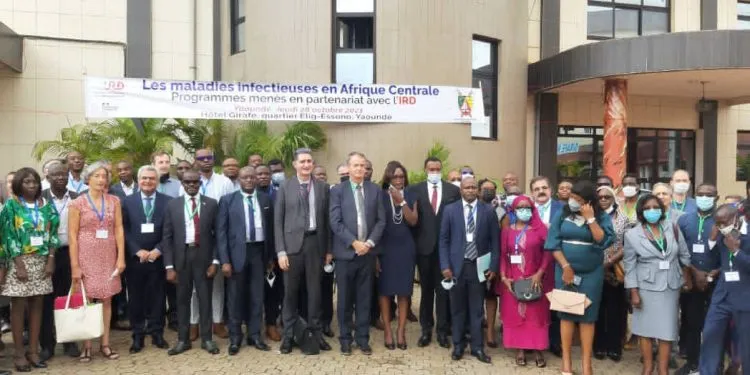Some health specialists from across the Central African Sub-region have met to map out a harmonized strategy for the fight against infectious diseases within the region.
This was during a three-day workshop organized in Yaounde by the Institute of Research and Development, IRD, to seek new solutions to combat the rate of infections diseases in the region.
The participants who are specialists in viruses, bacteria, and parasites, were drawn from Congo, Gabon and Cameroon, and DR Congo.
Speaking during the event, the Director of Cooperation at the French Embassy in Yaounde, Yann Lorvo, pointed out the need for greater cooperation amongst the various scientists towards the eradication of infectious diseases in the region.
He said, “now is the time for the various specialized health experts that are those studying animals, those specialized in the environment as well experts on weather studies to come together and share ideas, to provide solutions to the health challenges that the region is facing, all these areas are all connected to the human health”.
Yann Lorvo further urged the experts not to relent their efforts in the quest for answers to health challenges stating that the answer to any problem can only be solved through hard work.
According to Prof Joseph Kamgno, the Director of the Centre For Research on Filariasis and other Tropical Diseases, CRFilMT the Cameroonian government has made enormous thrive to fight the diseases.
“There are viruses, parasites, and bacteria who are still present in this region, a lot has been done by the government of Cameroon to this end. For example, take the case of onchocerciasis also known as river blindness. We have eliminated this in some areas of Cameroon already,” the epidemiologist said.
He added that: “Even for the case of Lymphatic filariasis known as elephantiasis, is almost eliminated in Cameroon as we speak. I admit that we still have a long way to go but let’s not ignore the efforts that the Ministries of Public Health and Scientific Research have done so far to the eradication of this disease”.
By Harrison Ashu



